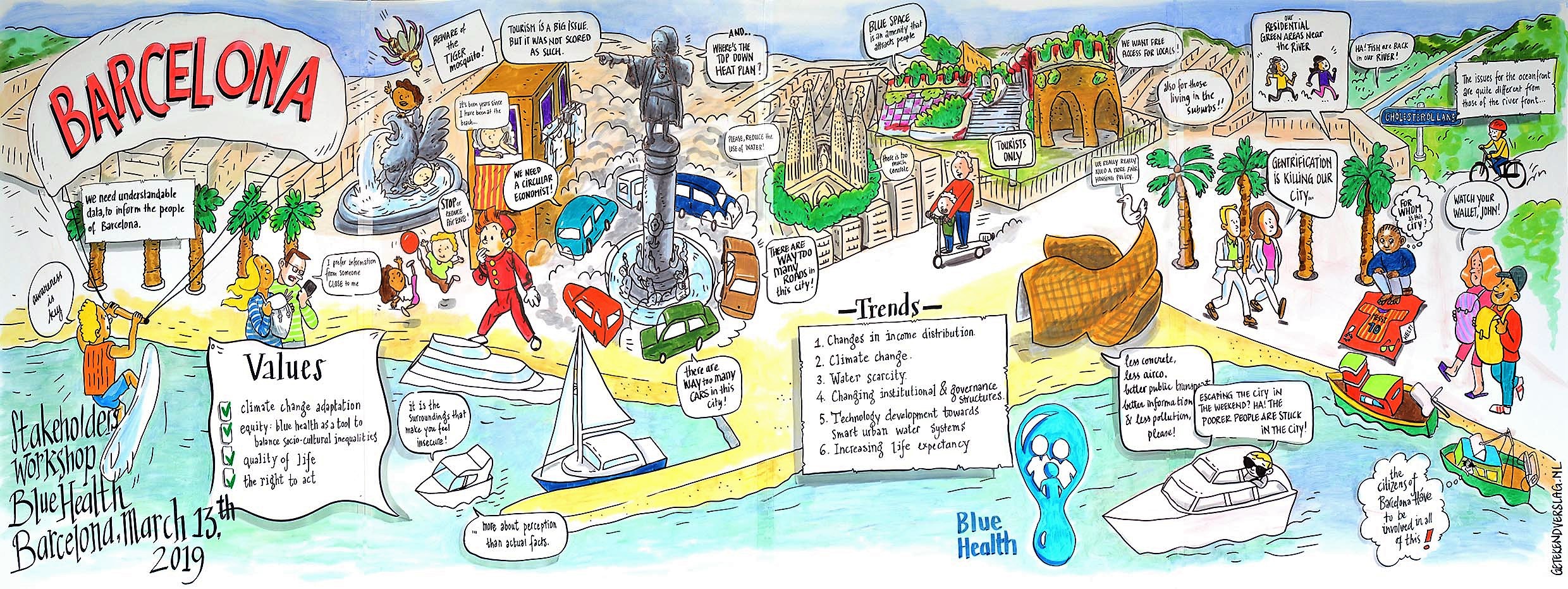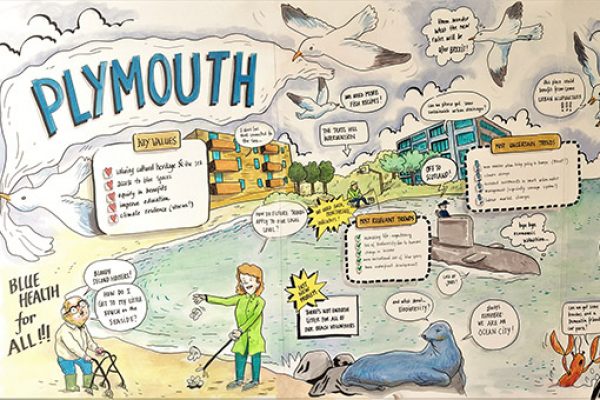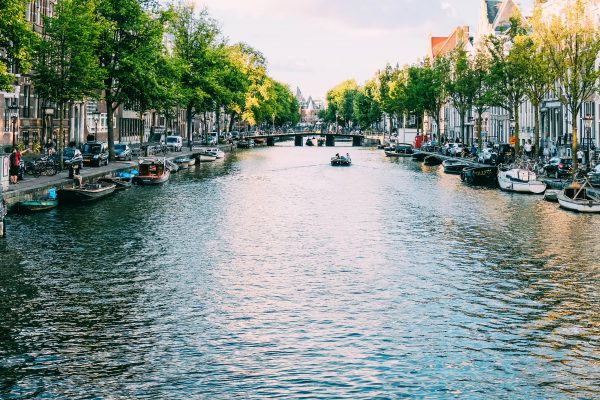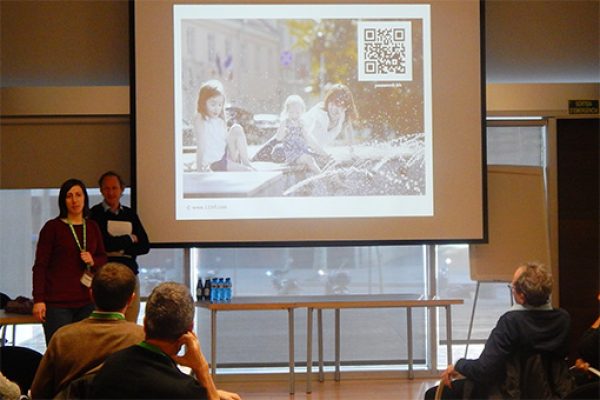Scenario workshop in Barcelona
As we try to understand how interactions between water and health will develop in the coming decades, creating future scenarios is a key part of the BlueHealth project.
We’re holding six stakeholder workshops—in Amsterdam, Plymouth, Barcelona, Tallinn, Malmo and Thessaloniki—as part of this work, which each follow a similar set of steps.
First we identify important ‘values’ related to BlueHealth for the city. Next we select a number of trends that are most relevant for the city’s future when it comes to BlueHealth related issues. Then we discuss how the selected trends might impact the city and what interventions could be taken in order to shape the future in a positive way.
We then take our outcomes from workshops, combine it with city-level climate projections created by our colleagues at CMCC, and add demographic, economic and socio-cultural trends for each city.
These scenario reports include both quantitative information on the direction of relevant future trends, and more qualitative insights on how to cope with the challenges related to water and health that the city will have to deal with.
We’ve already met in Estonia, the Netherlands and the UK, and in March 2019 we met with our team from ISGlobal to focus on BlueHealth futures for Barcelona.

Visual notes from the meeting in Barcelona, you can view a large version here.
A broad range of stakeholders participated, including experts in spatial planning, architecture, water sanitation and epidemiology. The aim of the workshop was to identify important values and relevant trends for the city of Barcelona and to discuss the impact of the most relevant trends for Barcelona in 2040.
The main values identified for Barcelona were ‘climate resilience’ and ‘equity: balancing socio-cultural inequalities’, with the selection of relevant trends including:
- Changes in income distribution;
- Climate change;
- Water scarcity;
- Changing institutional and governance structures;
- Technology development towards smart urban water systems;
- Increasing life expectancy.
The final round of discussions focused on ‘changes in income distribution’ and ‘climate change’.
Here is a summary report describing the key discussions.
These sessions have been incredibly valuable and will help us understand how Europe’s cities might evolve with BlueHealth in mind over the coming decades.




